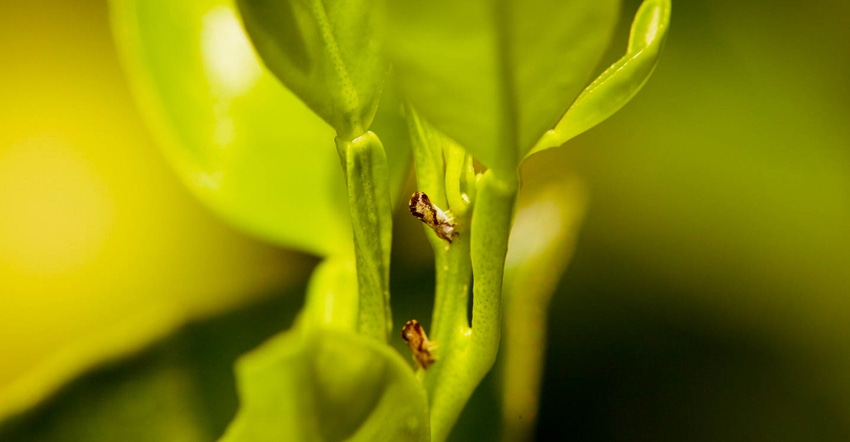December 1, 2018

Sponsored Content
Aphids, psyllids and whiteflies are well-known menaces to many growers and can cause costly damage to a field. The quicker growers can get these piercing-sucking insect pests to stop feeding on their plants, the healthier and more productive plants will be. To help manage these insect pests, BASF developed the active ingredient Inscalis® insecticide to help growers.
Inscalis insecticide is the active ingredient in both Sefina™ Inscalis insecticide and Versys™ Inscalis insecticide, which will help control pests in specialty and row crops. In citrus, Sefina Inscalis insecticide helps control the devastating Asian citrus psyllid and suppresses scale insects. In cotton, cucurbits and fruiting vegetables, Sefina Inscalis insecticide helps control whiteflies and aphids. In brassica, leaf petiole and leafy vegetables, as well as in pome and stone fruit, Versys Inscalis insecticide helps control aphids.
These products will provide a fast onset of action to rapidly stop piercing-sucking insects in their tracks by disrupting their chordotonal organs, which control an insect’s sensory responses including hearing, orientation and balance. By attacking these organs, Sefina Inscalis and Versys Inscalis insecticides will stop the pests from feeding and reduce the spread of pathogens and plant damage. By slowing the progression of insect-vectored diseases from target pests, these insecticide products allow for higher yields and better crop quality.
“Insect pests like the Asian citrus psyllid, aphids and whiteflies have caused a tremendous
amount of damage across crops. The longer these insects stay on the leaves of a crop, the more damage they can cause,” said Dr. Kevin Caffrey, Ph.D., BASF Technical Service Representative. “Sefina Inscalis and Versys Inscalis insecticides will act to slow the progress of diseases vectored by these pests by providing a fast onset of action to stop damage sooner and help growers retain a greater yield potential.”
The Inscalis insecticide formulation
The novel mode of action behind these products is a translaminar chemistry, moving through the leaf to control target pests that may be living on the underside of leaves. This chemistry has also shown movement within the plant toward the tips of leaves as leaf tissue expands during plant growth.
Sefina Inscalis and Versys Inscalis insecticide labels do not have pollinator restrictions, meaning growers have more flexibility on application timing, especially when crops are in bloom. As insecticides with a good residual profile, Sefina Inscalis and Versys Inscalis insecticides can be easily integrated into current insect control programs for growers to use to stop the damage to their crop sooner.
Both Sefina Inscalis insecticide and Versys Inscalis insecticide recently received registration with the U.S. EPA and are awaiting registration in California. Growers can learn more about Inscalis insecticide, Sefina Inscalis insecticide and Versys Inscalis insecticide by contacting their local BASF representative.
Always read and follow label directions.
Inscalis is a registered trademark, and Sefina and Versys are trademarks of BASF. Inscalis is registered with the EPA but is not available for use in California. © 2018 BASF Corporation. All rights reserved.
About the Author(s)
You May Also Like




